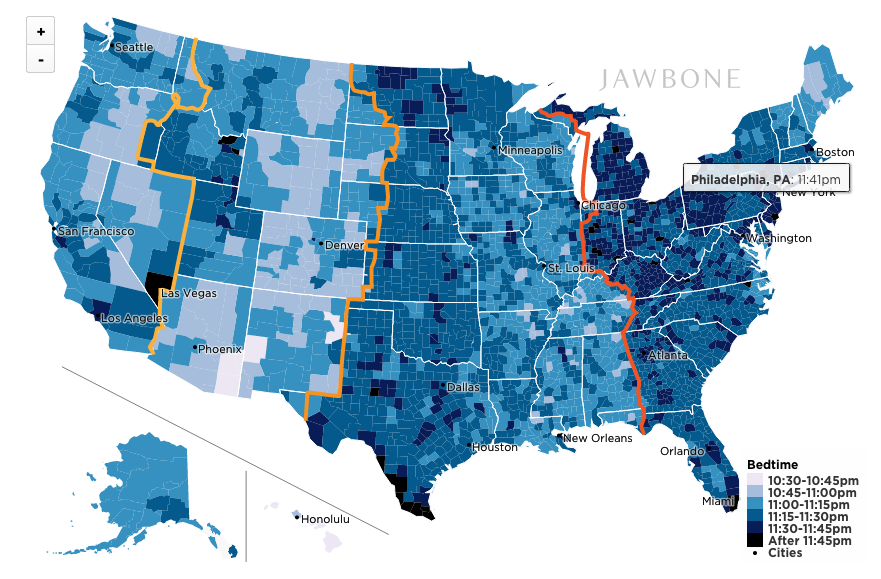It’s time to get up. Whether or not you hear the explicitly Monday morning or if’s meant by your alarm shouting at you, who really enjoys waking up Monday? A lot of the reluctance to wake up may have to do with when one goes to bed. One of my colleagues sent me a post over on Huffington Post that looks at Jawbone’s data visualisation of bedtimes across America.
Cities stay up late—not surprising. What I do find interesting is that in the rural and suburban, i.e. principally non-major city counties, there seem to be some interesting things going on. In particular, look at the shift in bedtime across the Eastern–Central and Central–Mountain time zones in particular. It’s a pretty clean break. And then within the Central timezone we have another shift. I wonder how much of this has to do with the needs of farming daylight hours. And that because the sun does not really set according to our clocks, the later sunset times in the western portions of timezones shift those bedtimes later. Like I said, interesting.
Then from the data side of things, I wonder if “thousands of users” across the 3000+ counties of the US are distributed sufficiently to achieve meaningful samples in many of those rural/suburban counties. And then what about those who have to work night shifts? How does that impact the data set?

Credit for the piece goes to Brian Wilt.
